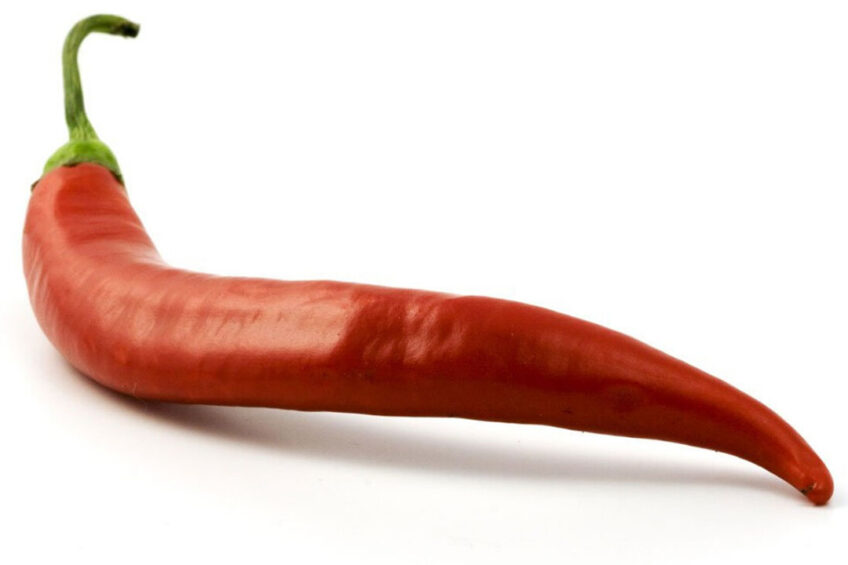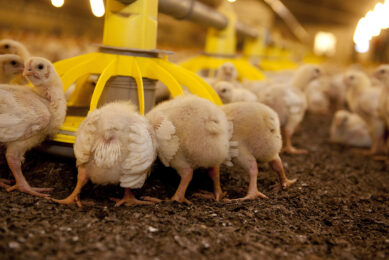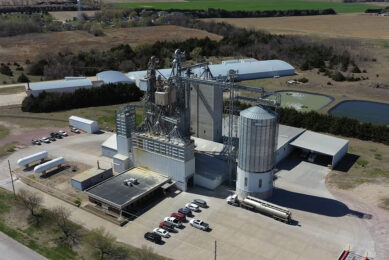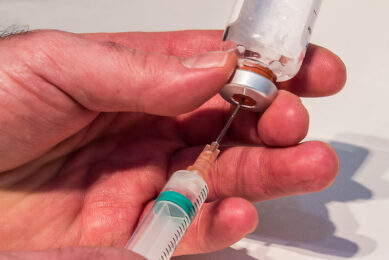Replacing antibiotics with capsicum extract

Natural capsicum extract can replace chlortetracycline antibiotics without hindering the performance and health status of broilers.
This is the result of a recently published study conducted by researchers from China Agricultural University. To their knowledge, studies that focus on the effects of capsicum extract alone as an antibiotic substitute on broilers’ growth performance and health status are limited, as is the mechanism of action of the extract in broilers. This was the basis of their investigative study which explores the mechanism of action of the extract.
The application of antibiotic growth promoters (AGPs) in animal feed has been banned in several countries due to the risk of bacterial drug resistance and bacteria and antibiotic residues in animal products. Owing to their bioactive compounds, plant extracts are considered potential alternatives to AGPs.
Capsicum extract
Chili pepper (Capsicum annuum) is widely planted throughout the world and applied in food and traditional medicine. Capsaicin, the origin of the spicy taste of chili pepper, has been proved to play an important role in the improvement of antioxidant capacity and anti-inflammatory activity, relief of pain, and modulation of lipid metabolism and intestinal microbial community. Thus, natural capsicum extract, whose main component is capsaicin, might positively impact poultry production.
In their research, the scientists determined the effects of natural capsaicin extract as an alternative to the antibiotic chlortetracycline on growth performance, antioxidant capacity, immune function, and meat quality in broiler chickens. A total of 168 day-old broiler chickens were randomly allotted to 3 dietary treatments.
The 3 dietary treatments included:
- a maize-soybean meal basal diet (control diet),
- a basal diet + 75 mg/kg chlortetracycline, and
- a basal diet + 80 mg/kg natural capsicum extract.
The experimental period was from day 1 to day 42.
Growth performance
The overall weight gain for the total period was 5% and 8% higher in the extract group compared to the control and the antibiotic group, respectively. Feed intake also followed a similar pattern. The feed conversion ratio for the extract was 1.46, for the antibiotic 1.48, and for the control 1.50.
The improvement in growth performance was attributed to the antioxidant capacities and anti-inflammatory activities of capsaicin that result in a healthier GIT system. The researchers also pointed to similar studies that proved the efficacy of the extract; for example, a study in broilers shows that 100 mg/kg of plant extract (including 1.98% capsaicin) reduces the abundance of E. coli and Clostridium perfringens in the rectum, while a study in laying hens shows that supplementing natural capsaicin significantly decreases the abundance of pathogenic bacteria when challenged by Salmonella enteritidis.
Nutrient digestibility
The digestibility of OM, CP, and EE in broilers fed the capsicum extract was higher than for both the antibiotic and control groups. Capsicum supplementation also improved dietary N-corrected apparent metabolizable energy (AMEn) compared to non-supplemented or chlortetracycline-supplemented diets. According to the researchers, the improvement in nutrient digestibility is related to the increase in activity of digestive enzymes. In their study, the activity of lipase and trypsin enzymes was higher in the capsicum extract diet than in both the control and the chlortetracycline groups. “The possible underlying mechanism of increased digestive enzyme activities may be related to the increase of endogenous cholecystokinin (CCK) levels. Chronic CCK stimulation could improve pancreatic functions, and it has been shown that capsaicin could increase the concentration of CCK via stimulating the capsaicin-sensitive afferent vagal pathway,” said the researchers.
In addition, they speculated that higher CP digestibility was also associated with a decrease of serum urea-N concentration in broilers. A high level of serum urea-N is considered to have adverse effects on the growth performance of broilers as a stressor.
Antioxidant capacity
It has been reported that intensive broiler rearing could lead to excess production of reactive oxygen species (ROS) or free radicals; excessive production of ROS could result in lipid, protein, and DNA damage. Antioxidant enzymes such as superoxide dismutase, catalase, and glutathione peroxidase, play an important role in protecting against oxidative damage. The current study showed enhanced serum total antioxidant capacity, superoxide dismutase, and glutathione peroxidase concentrations in broilers fed the capsicum diet. The catalase level in the liver was higher in broilers fed the extract than in the control and antibiotic diets. Moreover, the addition of capsicum extract decreased the serum MDA concentration, a product of lipid peroxidation; MDA reflects the level of oxidative stress. Overall, the extract improved antioxidant capacity in broilers. It was concluded, “the phenolic hydroxyl group of capsaicin can transfer hydrogen atoms from free radicals, efficiently reducing their activities.”
Immunity
Capsicum extract had positive effects on the immune function of broilers. For broilers from the capsicum extract group an increase in the weight of bursa of Fabricius relative to body weight was found compared to broilers from the antibiotic and control groups. The bursa of Fabricius is an essential immune organ in broilers, and its relative weight is a key indicator of health status. In addition, lower concentrations of pro-inflammatory cytokines TNF-α and IL-1β were observed in broilers fed the extract, showing the extract’s anti-inflammatory effects in broilers. Thus, the anti-inflammatory effects of capsaicin were attributed to its effective regulation of the pro-inflammatory factors.
Meat quality
In this study, the meat quality of breast muscle of broilers fed the capsicum diet significantly improved compared to the control group. On day 42, breast muscle samples of broilers fed the extract showed lower drip loss and lightness values compared to the control and chlortetracycline groups. In addition, samples of broilers fed the antibiotic diet had a higher pH value at 24 h compared to broilers fed either the control or the extract diet. The reason for improved meat quality was related to capsaicin’s antioxidant and anti-inflammatory properties.
The researchers concluded that capsicum extract alone can act as an antibiotic substitute without compromising the growth performance and health status of broilers.
References are available upon request











